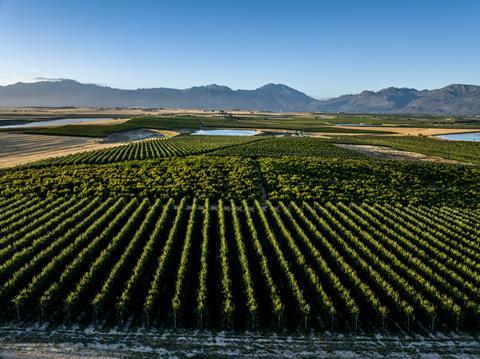Growers are predicting a better export season after 2023/24 was disrupted by weather and logistical issues

South African exports of nectarines, plums and apricots are all expected to rise this season on the back of investment in the planted area and new varieties, while there is cautious optimism that strategic changes at the Port of Cape Town will result in a more reliable service.
Projections from industry body Hortgro show that plum volumes are set to increase by 12 per cent to an average-sized crop, with exports reaching 13.7mn cartons thanks to more favourable weather conditions and new plantings coming on stream.
The season total for nectarines is also forecast to rise by 4 per cent to 9.12mn cartons, with the increase credited to more high-yielding varieties coming into production. However, Hortgro has warned that the early crop has been adversely affected by the weather, with early varieties set to be down 8 per cent compared to last season.
Peach exports are expected to see a 1 per cent decline, with a crop of 1.85mn cartons anticipated. It comes with the planted area for the crop on a downward trend, with both clingstone and dessert peaches falling by 8 per cent and 10 per cent respectively this year.
“South African stone fruit will continue to meet the market’s expectations for high-quality and great-tasting produce,” said Jacques du Preez, general manager of trade and markets at Hortgro. “South African growers are positive about the 2024/25 harvest and export season. Continuous delivery of top-quality, great-tasting fruit remains the aim, and will lead to repeat sales. But it’s important suppliers receive fair returns from the market after several years of having to contend with severe price pressure and adverse weather.”
Hortgro will once again be supporting the season in the UK with a wide-ranging marketing campaign. It will include recipe creation, retailer activity, trade and consumer press releases, feature articles, trade advertising, social media, and influencer collaboration.
The campaign aims to maximise visibility at point of sale and highlight both the exceptional taste of the fruit, and the fact that the country is the most sustainable source of Southern Hemisphere stonefruit.
The other big talking point around South African supply has been the impact of logistical issues, which have particularly been focused on the Port of Cape Town. Hortgro said it believes that a turning point in the crisis has been reached, though it cautions that another challenging season lies ahead with the industry seeking to make use of alternative modes of shipping. While this will add cost, it will mean on-time deliveries of quality fruit and clients’ programmes being fulfilled.
For the longer term, logistics operator Transnet has begun implementing the strategic replacement and refurbishment of equipment and machinery at the Port of Cape Town, as well as contracting maintenance and related services and appointing additional staff. As a result, productivity is expected to improve, but Hortgro is nevertheless preparing for challenges such as downtime on equipment and wind delays, and is contingency planning for alternative modes and nodes of shipping such as the use of specialised reefer vessels and other ports in the Eastern Cape and Durban.
“As collective fruit industries, we continue to work closely with the management of the Port of Cape Town and will do everything within our reach to ensure a smooth logistical operation,” Du Preez said. “The weekly engagement between Transnet management and the industry including logistics service providers and shipping companies will continue.”



